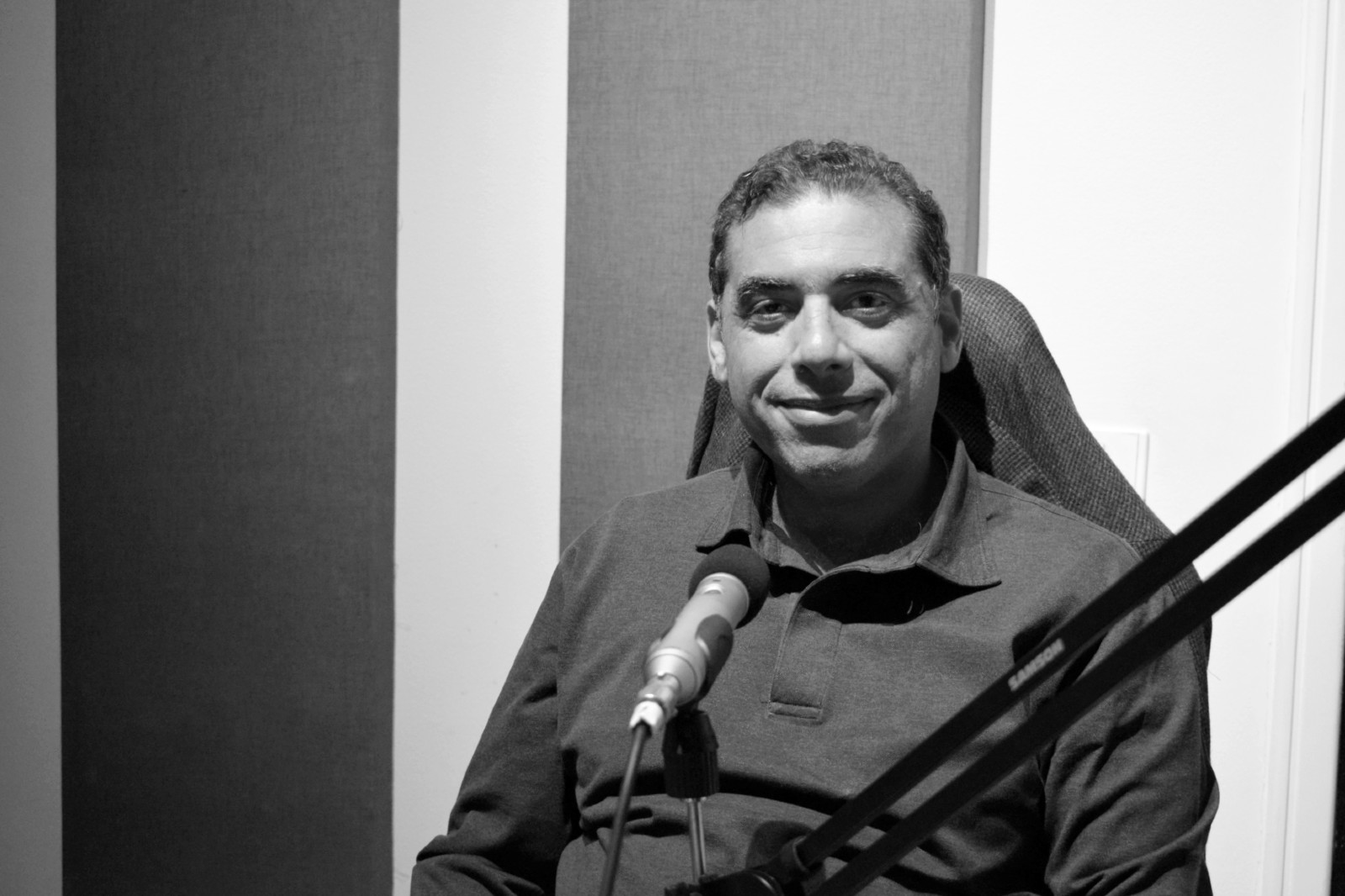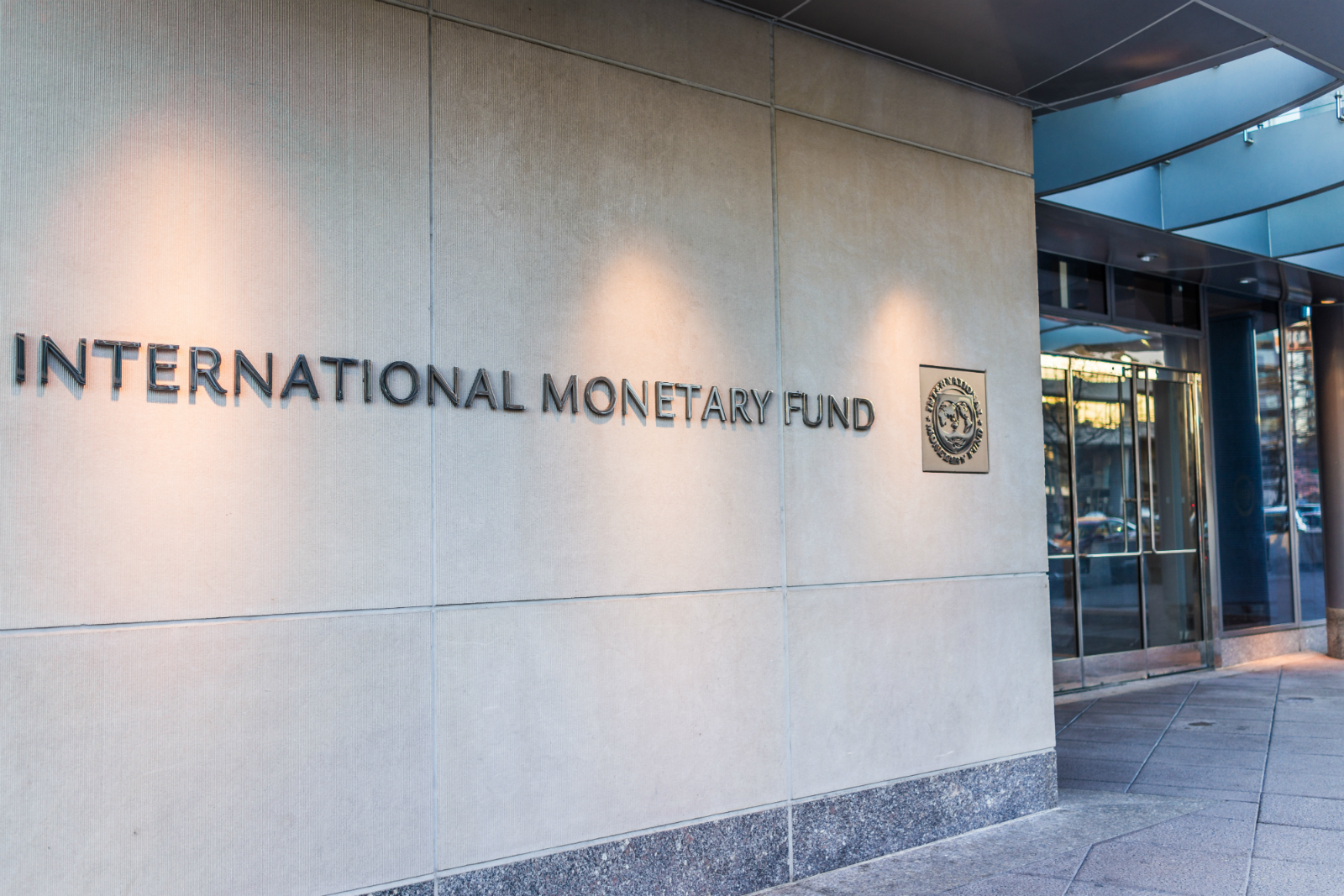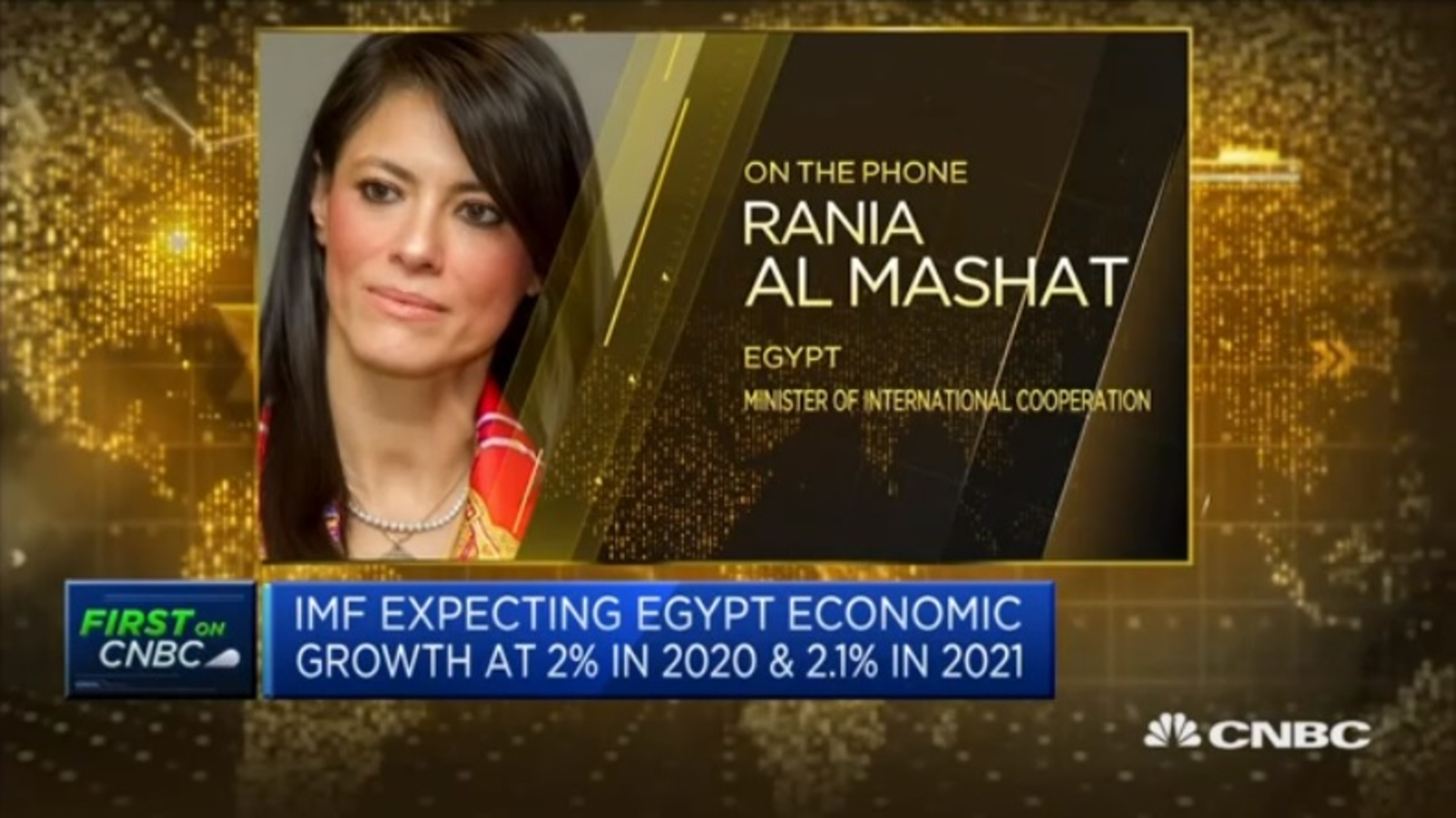- IMF expected to approve USD 2.7 bn in fresh funding for Egypt on Monday. (Speed Round)
- Pandemic is expediting, not pausing, Egypt’s structural reform plans -Al Mashat. (Speed Round)
- Covid-19 isolation hospitals at full capacity; other public hospitals will now start handling cases. (Speed Round)
- Education Ministry mulls rotation system for public schools when new school year starts this fall. (What We’re Tracking Today)
- Egypt now has 7,588 covid cases after another 387 infections reported. (What We’re Tracking Today)
- SFE, Concord sign agreement on USD 300 mn healthcare fund. (Speed Round)
- Uber said to have cut 40% of Egypt staff amid global job cutback. (Speed Round)
- US, Europe, China: Nobody is looking good right now. (What We’re Tracking Today)
- The Market Yesterday

Thursday, 7 May 2020
IMF expected to approve USD 2.7 bn for Egypt on Monday
TL;DR
What We’re Tracking Today
Rejoice, friends, for it is Thursday — and also the end of the second week of Ramadan. A handful of things we’re thinking of as we get ready to slide into the weekend:
The Education Ministry is looking at how some students might return to the classroom in the fall, Education Minister Tarek Shawki told talk show host Wael El Ibrachy (watch, runtime: 33:35). The ministry is mulling a rotation system for public schools that would see a six-day school week with students divided into three groups, each of which would spend two days in the classroom and four days learning from home each week. We’re taking that as a signal students are unlikely to return to classrooms before fall.
That has us wondering what classes at private schools might look like when schools are “back to normal.” The rotation policy could be one solution. Another: Canada’s Globe & Mail looks at what’s happening as some K-12 schools prepare to reopen in the province of Quebec as early as next week. The takeaway: Look for art, PE, drama and other elective classes to be cancelled and far fewer students sitting in each classroom. On the postsecondary side, Business Insider says some high-profile US colleges are preparing for more online learning this fall, while others will take a hybrid approach, offering a mix of online learning and on-campus instruction — and no extracurricular activities to speak of.
Expect lots of pressure to revise not just your seating plan, but your WFH policies when schools do go back into session: With many in the business community starting to itch about returning to our way of life pre-covid, we’ve been thinking a lot about office space. We talked earlier this week about how the NYT thinks the open-plan office could be on the endangered species list. Yesterday, Reuters got in on the act, while the Wall Street Journal wonders whether corporate leaders are going to turn more and more to surveillance technologies in the workplace under the guise of safeguarding employee health. Real estate company Cushman & Wakefield, meanwhile, is pushing a new office design (watch, runtime: 2:09).
But what if you love WFH and just don’t wanna go back? Corporate leaders are going to come under pressure to re-think their work-from-home policies — particularly after schools go back (touch wood) and it becomes a lot easier for many knowledge workers to focus at home.
Oh, and speaking of kids going back: A growing body of evidence suggests the little ankle-biters may be important spreaders of covid-19 after all — a potentially worrisome development given the virus that causes covid appears to have mutated to become more infectious.
News triggers to keep your eye on over the coming days:
- Foreign reserves figures for April should be released today;
- Inflation figures for April are out on Sunday, 10 May.
- The CBE’s Monetary Policy Committee meets next Thursday, 14 May, to review interest rates.
The market today: Shares in Hong Kong, Tokyo, and China were down in early trading this morning, with only Seoul bucking the trend. Futures suggest shares in continental Europe will open down while the London Stock Exchange and US benchmarks appear set to up in the green later today.
The EGX30 was up 1% yesterday as foreigners emerged as net buyers. This is the first day this week the exchange ended the session in the green. EGP 909 mn-worth of shares changed hands yesterday, about 33% above the 90-day trailing average. The benchmark index is now down 26.3% since the start of the year.
So, when do we eat? Maghrib prayers are at 6:36pm and you’ll have until 3:29am to finish caffeinating. Fajr is coming one minute earlier every day through the end of the Holy Month.

COVID-19 IN EGYPT-
Egypt has now disclosed a total of 7,588 confirmed cases of covid-19 after the Health Ministry reported 387 new infections yesterday. The ministry also said that another 17 people had died from the virus, taking the death toll to 469. We now have a total of 2,314 confirmed cases that have since tested negative for the virus after being hospitalized or isolated, of whom 1,815 have fully recovered.
The advertising industry was driven to a near standstill by the outbreak, according to Federation of Egyptian Industries member Ashraf Khairy, according to Al Shorouk. Khairy suggests that advertising activity by real estate developers is down 70% from this time last year, with outdoor ads having taken it on the chin particularly hard. A study by outdoor ad aggregator Admazad earlier this week noted that more than half of billboards in the Greater Cairo Area were empty in April 2020 compared to a vacancy rate of just 18% in the same month last year.
The State Council is heading back to work on Saturday — under certain conditions. The local press reports that only staff and court lawyers will be admitted into the building and that there will be a cap on how many people are allowed into court to enforce social distancing.
The government is coordinating with unnamed producers to ramp up production of medical masks, Prime Minister Moustafa Madbouly said yesterday, according to a Cabinet statement.
Egypt has repatriated 104 citizens from India, according to Al Masry Al Youm. The returnees will remain under the regular 14-day quarantine at a Marsa Alam hotel before being released.

DONATIONS-
Hassan Allam and Elsewedy Electric have covered the cost of more than 40-tonnes of medical supplies. The Unified Procurement Authority has imported more than 40 tonnes of medical supplies in two separate shipments over the past month, according to an emailed statement (pdf). Hassan Allam and Elsewedy Group each paid for one of the shipments.
State-owned e-Finance has donated EGP 500k-worth of meals in collaboration with the Misr El Kheir Foundation and the ministries of social solidarity and youth and sports, a company statement (pdf) said.
GLOBAL MACRO-
Three stories are vying for your attention right now. Any one of them would be blockbuster news in normal times:
- The US is just now accepting it is in for a very long economic recovery;
- The slump in Europe is shaping up to be the worst since the Second World War;
- And this is the moment the Trump administration thinks the best idea is to ramp up tensions with Beijing.
SINO-AMERICAN TENSIONS- The new chill in Sino-American relations is front-page news on both sides of the Atlantic, as these stories from the Financial Times and the Wall Street Journal make clear. The Donald is considering measures to “curb supply chains and investment flows” out of anger over how Beijing handled the coronavirus outbreak. That comes as analyst expect China to report a double-digit drop in both exports and imports for April, a Reuters poll showed yesterday.
CORPORATE AMERICA has woken up to the fact that cash is king. US execs are more concerned about financing than at any point during the 2008-09 recession, according to a new study by researchers at the Federal Reserve. Data gathered from more than 600 earnings calls in April reveal that 42% of US non-financial public companies are considering cutting back on investments, significantly higher than the 25% recorded at the peak of the last recession. More than a quarter of firms are discussing cutting payouts and 17% are drawing down credit lines, more than twice the number in 2008.
The US jobs market is an unmitigated disaster right now: More than 20 mn Americans were laid off in the month of April, according to the latest ADP National Employment Report (pdf). It’s the worst month of job losses in the report’s history — more than twice as many jobs were lost in April as were lost during the entire global financial crisis.
With that in mind, it’s no wonder why states are desperate to reopen their economies. But with 30k cases still being reported every day, inadequate testing, and the inability to trace 30k people a day, “America is steamrolling toward a nightmarish failure to control the coronavirus,” Axios says.
Forget about that V-shaped recovery: Blackrock boss Larry Fink told a private meeting of investors to expect a wave of bankruptcies in the coming months, an extended slump in consumer demand, and an 8% corporate tax hike to 29%, Bloomberg reports, citing a person with knowledge of the conversation.
THE WORST OUTLOOK IN EUROPE since the war — and there’s more to come. “‘The euro area is facing an economic contraction of a magnitude and speed that are unprecedented in peacetime,’ Christine Lagarde, the president of the European Central Bank, said as she warned that the eurozone economy could shrink by as much as 12 percent this year,” the New York Times reports. Policymakers agree the ECB can’t turn things around without coordinated help from politicians, but analysts worry the “divided” EU may not be able to get the job done.
Germany is the poster child for what’s good and bad in the EU right now: Its constitutional court ruled this week that one of the ECB’s primary tools to protect the euro and support sovereign bond prices violates the German constitution, the FT reports. The news comes as Chancellor Angela Merkel said German has put the first phase of the pandemic behind it and will now prepare to reopen “schools, day care centers, stores and restaurants” in the coming days and hotels by the end of the month.
AND THE REST OF THE WORLD-
Almost a third of the world’s population will be living in regions too hot for human habitation by 2070 if climate change continues on its current track, according to a study published in the Proceedings of the National Academy of Sciences, the New York Times reports. The regions most likely to be affected are those whose populations are growing the fastest today, adding to concerns. The list includes the Middle East, sub-Saharan Africa, India, South America, Southeast Asia and Australia.

It’s Making It day: Episode three of the second season of our podcast on building a great business in Egypt is out today. Look for the latest episodes every Thursday this Ramadan.
Today’s guest: Amro Abouesh, CEO and Managing Director of Tanmeyah, who left a comfortable position with Banque du Caire to roll the dice as a founder of Tanmeyah, which has grown from a scrappy startup into the nation’s leading private-sector microfinance player — and prompted just about everyone else in the finance industry to look at how to make money serving the ‘bottom of the pyramid’ in the nation’s economy. Tanmeyah grew as a portfolio company of investment company Qalaa Holdings before being acquired by frontier and emerging markets financial services player EFG Hermes.
Tap or click here to listen to the episode on our website | Apple Podcast | Google Podcast | Omny. We’re also available on Spotify, but only for non-MENA accounts. Subscribe to Making It on your podcatcher of choice here.
Enterprise+: Last Night’s Talk Shows
Nothing to see here, folks. We’ll be back on Sunday after TV’s power couple Lamees El Hadidi and Amr Adib return to the studio on Saturday night.
Speed Round
Speed Round is presented in association with

The IMF is expected to approve USD 2.7 bn in new funding for Egypt when it meets on Monday, Bloomberg reports, citing an official familiar with the matter. Egypt applied last month for new funding via a one-year rapid financing instrument (RFI) and a stand-by arrangement (SBA) to help support its balance of payments and maintain its reform momentum. “The IMF staff is in discussions with the authorities and expects to present the RFI request to the board on 11 May,” IMF Mission Chief for Egypt Uma Ramakrishnan told Bloomberg. A report in the local press earlier this week claimed that Egypt could receive the first tranche of funding by Monday, citing an unnamed central bank official.
The calendar page for the IMF’s executive board for Monday shows only one agenda item: a discussion of Egypt’s request for an RFI.
We’re still not clear on how much we’re going to get via the SBA: The agreement will, like the RFI, last for one year and will be accompanied with a sovereign bond issuance to shore up Egypt’s current account, the official said, without providing a figure. The Institute of International Finance (IIF) said in a research note this week that, overall, we could receive up to USD 8.4 bn (or 300% of our quota) under both arrangements, but this would depend on financing needs, repayment capacity, and our track record in using previous IMF funds.


Pandemic is expediting, not pausing, Egypt’s structural reform plans -Al Mashat: The government is not looking to slow down its planned structural reform program on the back of the economic fallout from the covid-19 outbreak, International Cooperation Minister Rania Al Mashat tells CNBC (watch, runtime: 2:29). Some reforms, including widening social safety nets for the population’s most vulnerable, as well as measures pertaining to financial inclusion and informal labor, are now “coming in a very expedited fashion,” the minister said.
If anything, we have previously enacted reforms to thank for the economy’s ability to withstand the initial shock, Al Mashat said. She stressed the importance of shoring up the country’s FX reserves and creating a fiscal buffer that allowed the government to roll out a stimulus package and other measures to prop up the economy. “If it weren’t for those comprehensive reforms on the tax side, on the budget, on foreign exchange and so forth, the situation would have been … even more difficult.”
Background: The Sisi administration rolled out in mid-March a EGP 100 bn stimulus and bailout package, which Finance Minister Mohamed Maait later signaled could be expanded if need be. The Central Bank of Egypt (CBE) also cut interest rates by 300 bps in an emergency response, which helped create more room for the state to maneuver, and committed EGP 20 bn to directly purchase equities and support asset prices on the EGX. The Institute of International Finance said in a note (pdf) earlier this week that the measures — coupled with a drop in revenues from tourism, remittances, and taxes — could widen Egypt’s fiscal deficit in FY2019-2020.

Egypt’s isolation hospitals are maxed out: Hospitals used to isolate covid-19 patients reached full capacity this week, Assistant Health Minister Ahmed El Sobky said, according to Al Masry Al Youm. This has prompted the ministry to search for other alternatives, such as using hotels to add capacity in a similar fashion to what was done in hotels in Marsa Alam to quarantine people returning from abroad, El Sobky said. The solution has also been employed in European and Asian countries to isolate people who test positive (or were believed to have been exposed), but who were asymptomatic or suffering only mild symptoms.
The solution: Isolate and treat covid-19 patients in the same hospitals. Plans being drawn up by the ministry that would phase out designated isolation centers and instead isolate and treat covid-19 patients in hospitals that remain open to non-infected patients, Al Shorouk reported yesterday, quoting unnamed ministry sources. Thirty-four respiratory disease and fever hospitals will be equipped to handle the treatment process in the coming month and the 17 isolation hospitals will only take in new patients as beds are freed, the sources said.
The government has told the private sector to be ready to handle cases, but hasn’t yet authorized them to handle covid patients. We reported last month that the Health Ministry had “issued an advisory to all private hospitals to create isolation wings that could house covid-19 patients.” Similarly, private-sector lab groups are not officially authorized to test for covid-19. We reported on Tuesday that members of the House of Representatives are lobbying the government to allow the private sector to start testing as part of a bid to increase Egypt’s total testing capacity.
In related news: The Supreme Council of Universities has asked the House Budgeting Committee for an additional EGP 2.5 bn in state funds in FY2020-2021 as the government enlists university hospitals and student accommodation facilities to treat and isolate patients, council head Hossam Abdel Ghaffar said, according to Al Mal. Around EGP 1.5 bn would be used to equip university facilities with the means for treating covid-19 patients, and a further EGP 1 bn would go towards the purchase of “non-financial assets.”

INVESTMENT WATCH- Egypt’s sovereign wealth fund sets up USD 300 mn healthcare fund JV with Concord: The Sovereign Fund of Egypt (SFE) and Concord International Investments, the SEC-regulated firm set up by Mohamed Younes and Prince Abbas Hilmi, have signed an MoU to set up a joint venture to manage a USD 300 mn healthcare fund focused on Egypt and the Middle East, according to a statement (pdf).
The fund will primarily target the support and expansion of both public and private healthcare infrastructure projects. It will also be mandated with setting up export-driven healthcare ventures and “identifying co-investment opportunities in significantly large projects.”
Is this one of the “low-risk” investments the SFE hinted at before? Just last month, the SFE was preparing a list of potential low-risk investments to present to investors after the covid-19 outbreak reaches a point of containment, SFE CEO Ayman Soliman said. The investments would be designed to restore confidence in the Egyptian economy.
The pandemic has prompted the SFE to revisit its list of priority sectors, Soliman told CNBC Arabia yesterday. Sectors that will make up the bulk of the fund’s assets moving forward include hospitality and tourism, education and healthcare, manufacturing and food processing, and fintech and banking, he said. The fund is currently targeting EGP 60 bn of assets to add to its portfolio, and is planning to quickly grow to EGP 1 tn.
Background: The SFE was set up less than a year ago in a bid to more effectively manage state-owned entities. The fund has so far been active in the energy sector — offering up a 70% stake in the first of three Siemens-built 14.4 GW combined cycle power plants — and was looking to get a piece of Banque du Caire before it shelved its IPO plans earlier this year. It has also entered into a USD 20 bn partnership with the Abu Dhabi Holding Company, signed an agreement with Hassan Allam Holding to invest in electricity, water, infrastructure, and renewable energy projects, and inked an agreement in February with the military’s National Service Products Organization to market some of its subsidiaries to private investors.

Uber cuts 40% of Egypt staff as it slashes its global workforce: Uber has laid off 40% of its Egypt-based desk staff as part of wider cuts announced yesterday, two former employees and one current staff member said, according to Reuters. The company had employed between 650 and 700 people, they said. An Uber spokesman refused to provide details on the layoffs.
Company cuts a fifth of its workforce globally: This came as the ride-hailing giant announced that it would cut 3.7k jobs across the world — 17% of its global workforce — as it struggles amid the covid-19 pandemic.
The ride-hailing industry has been hard-hit by the pandemic, prompting household names — including Lyft last week and, now, Uber — to announce cost cutting measures as lockdowns reduced the volume of taxi bookings, says the Financial Times. Uber’s Dubai-based subsidiary Careem announced earlier this week it’s moving ahead with 536 cuts after seeing business fall by 80%.
DEBT WATCH- Egypt’s total external debt rose 16% y-o-y in 2Q2019-2020 to USD 112.6 bn from USD 96.6 bn the previous year, according to official data. External debt rose 2.9% on a quarterly basis from USD 109.4 bn on 30 September.
Oil prices could hit USD 100/bbl in 18 months on post-corona rebound -Naguib: Global oil prices could hit USD 100/bbl within 18 months because a pick up in demand when the covid-19 pandemic subsides will be met with a supply shortage, Naguib Sawiris said in an interview with CNBC. The recent Saudi-Russia price war, which saw Riyadh ramp up production to record highs in spite of plunging demand, was a “calculated” effort to shut down competition from the US shale industry, says the b’naire. “I think they knew [prices would plunge] and they still wanted to do it because, by killing a competitor, the price will rise beyond USD 50-60. So I actually believe that 18 months from now oil will hit USD 100,” he said.
The distress investor locked inside Naguib likes the collapsing aviation, tourism sectors: Sawiris said that he would buy into airlines and sees openings in tourism, despite the sectors being two of the worst-hit by the pandemic. “You can go and buy an airline today for USD 1 if you are assuming the bulk of the debt,” he said. This comes just days after famed investor Warren Buffett liquidated his holdings of airline stocks, causing shares to tank.
The Export Subsidy Fund signed 41 new agreements to dish out subsidy arrears to exporters, according to a statement from the finance and trade ministries. The statement did not disclose the value of the agreements. Trade and Industry Minister Nevine Gamea said that EGP 2.9 bn in payments are on their way for 2,056 companies. The government disbursed EGP 2.13 bn of arrears in the first four months of the year. The government has committed to doling out at least 30% of the arrears it owes to exporters this year, with each company receiving at least EGP 5 mn. Small companies owed less than EGP 5 mn won’t be won’t be required to present tax clearances forms.
EARNINGS WATCH- Orascom Investment Holding (OIH) reported a net loss of EGP 418 mn in 2019, compared to a net profit of EGP 865.6 mn in 2018, according to an EGX disclosure (pdf). OIH’s revenue came in at EGP 1.17 bn, down from EGP 1.75 bn in 2018.
Egypt in the News
Leading the conversation in the foreign press this morning: Satirical filmmaker Shady Habash died in Tora Prison from alcohol poisoning after reportedly mistaking a bottle of alcohol-based sanitizer for water, the prosecutor general’s office said in a statement on Tuesday. Three inmates corroborated the account, the statement adds. Habash, 23, had been in pre-trial detention since 2018 over charges of spreading false information and belonging to a banned organization after directing a music video that satirized the head of state. (AFP | The Guardian | BBC | Washington Post | Open Democracy)
Also featuring in the foreign press this morning:
- Enforcing social distancing is an uphill struggle in Cairo: Shopkeepers are struggling to enforce social distancing as customers stock up on Ramadan supplies, despite repeated calls by authorities to take covid-19 precautionary measures seriously, Reuters reports.
- Calls for progressive reform: The government should undertake more social spending, use competitive bidding for all public contracts, and adopt a more progressive tax regime to ensure the economy can withstand future crises, argues Timothy Kaldas in this Bloomberg opinion piece.
- The plight of Egypt’s poor during lockdown: A Voice of America video report highlights the struggles faced by Egypt’s poor in a largely shuttered economy.
Diplomacy + Foreign Trade
Covid fails to dent Egypt’s position as the world’s largest orange exporter: Egypt remains the world’s largest exporter of oranges, sending 1.3 mn tonnes of the citrus fruit abroad so far this year despite the slowdown in trade caused by the covid-19 pandemic, Xinhua reports. Oranges have accounted for more than half of the 2.2 mn tons of agricultural products exported so far in 2020, official figures show. Egypt overtook Spain to become the world’s largest exporter of oranges in 2018.
Infrastructure
Transport Ministry plans new Nile River ports
The Transport Ministry is planning to construct several new inland ports along the Nile River as part of an ongoing project to increase the amount of goods transported via the river and reduce congestion on the roads, cabinet said this week.
Health + Education
Misr Pharmacies to spend EGP 120 mn on new branches, mobile app in 2020
Misr Pharmacies is planning to invest EGP 120 mn this year to open new branches and set up a new digital platform, CEO Ahmad Hassan told Al Mal. The company will spend EGP 100 mn to open 10-15 new branches this year, and EGP 20 mn on an app for online purchases and deliveries, he said.
Telecoms + ICT
Mobile subscriptions hits 95.3 mn in December
The number of mobile subscribers in Egypt rose 1.6% y-o-y to hit 95.3 mn in December, according to a Communications Ministry report (pdf). The number of ADSL subscribers increased 11.7% y-o-y to 7.3 mn in December, while mobile internet users rose to 39 mn, up 11.2% y-o-y.
Banking + Finance
MidElec to borrow EUR 30 mn to boost power to Midor refinery
Midor’s electricity company, MidElec, has signed a EUR 30 mn loan agreement with a consortium of four banks to increase the capacity of its power plant which supplies the company’s oil refinery, Al Mal reports, citing informed sources. The company will borrow EUR 12 mn from both the National Bank of Egypt and Credit Agricole, EUR 3 mn from the Suez Canal Bank, and EUR 3 mn from Faisal Islamic Bank. The loan has a nine-year repayment term.
Two-year lockup on 106 mn CI Capital shares expires
A two-year lockup period on a little over 106 mn shares of CI Capital issued in a capital increase (pdf) as part of the investment bank’s 2018 IPO has now expired, the local press reports. That means anchor shareholder Global Holdings Group is now free to sell shares representing 8.5% of CI Capital’s total share base, while Ismail Bin Ali Group has shares equivalent to 5.3% of the company now exiting lockup and CIB is now free to trade shares equivalent to about 5.7% of CI Capital’s total shares outstanding.
On Your Way Out

Twenty-first century Pangea: This is what the world would currently look like had the Pangea supercontinent never broken apart 200 mn years ago, according this amazing infographic courtesy of Visual Capitalist.
*** My Work From Home Routine is on hiatus and returns next week. Do you know of a business leader you’d like to see featured in My Work From Home Routine, our popular Thursday section? We’re taking suggestions for interesting people to feature. If you’d like to recommend someone with an interesting day gig who has an equally interesting work from home routine story to tell (whether it’s because they’ve aced the transition or are still struggling to adjust) please email us on editorial@enterprise.press.
The Market Yesterday
EGP / USD CBE market average: Buy 15.69 | Sell 15.79
EGP / USD at CIB: Buy 15.70 | Sell 15.80
EGP / USD at NBE: Buy 15.68 | Sell 15.78
EGX30 (Wednesday): 10,294 (+1.0%)
Turnover: EGP 909 mn (33% above the 90-day average)
EGX 30 year-to-date: -26.3%
THE MARKET ON WEDNESDAY: The EGX30 ended Wednesday’s session up 1.0%. CIB, the index’s heaviest constituent, ended up 0.8%. EGX30’s top performing constituents were Dice up 7.4%, AMOC up 3.6%, and GB Auto up 3.2%. Yesterday’s worst performing stocks were Emaar Misr down 0.4%, Madinet Nasr Housing down 0.4% and Heliopolis Housing down 0.2%. The market turnover was EGP 909 mn, and foreign investors were the sole net buyers.
Foreigners: Net long | EGP +136.0 mn
Regional: Net short | EGP -7.3 mn
Domestic: Net short | EGP -128.8 mn
Retail: 58.5% of total trades | 43.0% of buyers | 74.0% of sellers
Institutions: 41.5% of total trades | 57.0% of buyers | 26.0% of sellers
WTI: USD 23.99 (-2.3%)
Brent: USD 29.72 (-4%)
Natural Gas: (Nymex, futures prices) USD 1.94 MMBtu, (-0.15%, June 2020 contract)
Gold: USD 1,689.90 / troy ounce (+0.08%)
TASI: 6,655 (-0.83%) (YTD: -20.67%)
ADX: 4,021 (-2.0%) (YTD: -20.77%)
DFM: 1,919 (-0.65%) (YTD: -30.59%)
KSE Premier Market: 5,288 (+0.28%)
QE: 8,758 (-0.46%) (YTD: -15.99%)
MSM: 3,473 (-0.57%) (YTD: -12.76%)
BB: 1,288 (-0.77%) (YTD: -19.99%)
Calendar
14 May (Thursday): The CBE’s Monetary Policy Committee will meet to review interest rates.
23 May (Saturday): Earliest date on which suspension of international flights to / from Egypt expires.
23 May (Saturday): Earliest date by which restaurants, gyms, nightclubs, museums and archaeological sites will reopen.
23 May (Saturday): An administrative court will look into an appeal by steel rolling mills to overturn a government’s decision to place import tariffs on steel rebar and iron billets. The hearing was postponed from 22 February 2020.
23-26 May (Saturday-Tuesday): Eid El Fitr (TBC).
31 May (Sunday): A postponed court session for the lawsuit filed by Cairo Development and Auto Industry, a subsidiary of Arabia Investment Holding, against Peugeot Automotive to demand EUR 150 mn compensation.
9-10 June (Tuesday-Wednesday): US Federal Open Market Committee will hold its two-day policy meeting to review the interest rate.
30 June (Sunday): Anniversary of the June 2013 protests, national holiday.
25 June (Thursday): The CBE’s Monetary Policy Committee will meet to review interest rates.
28-29 July (Tuesday-Wednesday): US Federal Open Market Committee will hold its two-day policy meeting to review the interest rate.
30 July-3 August (Thursday-Monday): Eid El Adha (TBC), national holiday.
13 August (Thursday): The CBE’s Monetary Policy Committee will meet to review interest rates.
20 August (Wednesday-Thursday): Islamic New Year (TBC), national holiday.
15-16 September (Tuesday-Wednesday): US Federal Open Market Committee will hold its two-day policy meeting to review the interest rate.
24 September (Thursday): The CBE’s Monetary Policy Committee will meet to review interest rates.
24 September- 2 October (Thursday-Friday): El Gouna Film Festival, El Gouna, Egypt.
6 October (Tuesday): Armed Forces Day, national holiday.
29 October (Thursday): Prophet Mohamed’s birthday (TBC), national holiday.
November: Egypt will host simultaneously the International Capital Market Association’s emerging market, and Africa and Middle East meetings.
4-5 November (Tuesday-Wednesday): US Federal Open Market Committee will hold its two-day policy meeting to review the interest rate.
12 November (Thursday): The CBE’s Monetary Policy Committee will meet to review interest rates.
15-16 December (Tuesday-Wednesday): US Federal Open Market Committee will hold its two-day policy meeting to review the interest rate.
24 December (Thursday): The CBE’s Monetary Policy Committee will meet to review interest rates.
25 December (Friday): Western Christmas.
1 January 2021 (Friday): New Year’s Day, national holiday.
7 January 2021 (Thursday): Coptic Christmas, national holiday.
Enterprise is a daily publication of Enterprise Ventures LLC, an Egyptian limited liability company (commercial register 83594), and a subsidiary of Inktank Communications. Summaries are intended for guidance only and are provided on an as-is basis; kindly refer to the source article in its original language prior to undertaking any action. Neither Enterprise Ventures nor its staff assume any responsibility or liability for the accuracy of the information contained in this publication, whether in the form of summaries or analysis. © 2022 Enterprise Ventures LLC.
Enterprise is available without charge thanks to the generous support of HSBC Egypt (tax ID: 204-901-715), the leading corporate and retail lender in Egypt; EFG Hermes (tax ID: 200-178-385), the leading financial services corporation in frontier emerging markets; SODIC (tax ID: 212-168-002), a leading Egyptian real estate developer; SomaBay (tax ID: 204-903-300), our Red Sea holiday partner; Infinity (tax ID: 474-939-359), the ultimate way to power cities, industries, and homes directly from nature right here in Egypt; CIRA (tax ID: 200-069-608), the leading providers of K-12 and higher level education in Egypt; Orascom Construction (tax ID: 229-988-806), the leading construction and engineering company building infrastructure in Egypt and abroad; Moharram & Partners (tax ID: 616-112-459), the leading public policy and government affairs partner; Palm Hills Developments (tax ID: 432-737-014), a leading developer of commercial and residential properties; Mashreq (tax ID: 204-898-862), the MENA region’s leading homegrown personal and digital bank; Industrial Development Group (IDG) (tax ID:266-965-253), the leading builder of industrial parks in Egypt; Hassan Allam Properties (tax ID: 553-096-567), one of Egypt’s most prominent and leading builders; and Saleh, Barsoum & Abdel Aziz (tax ID: 220-002-827), the leading audit, tax and accounting firm in Egypt.




